Dr. Zaghloul Al-Najjar (1933–2025): The Pioneer of Scientific Miracles in the Qur’an
The Islamic world mourns the passing of Dr. Zaghloul Al-Najjar, a distinguished Egyptian scholar, thinker, and one of the foremost pioneers in the field of scientific miracles in the Qur’an. He passed away on Sunday in Amman, Jordan, at the age of 92.
The announcement was made through his official Facebook page, which stated:
“We extend our condolences to the Islamic Ummah on the passing of the eminent scholar, Dr. Zaghloul Al-Najjar.”
Funeral prayers will be held on Monday at Abu Aisha Mosque in Amman after the Ẓuhr (noon) prayer, and his burial will take place at Umm Al-Quttayn Cemetery.
The International Union of Muslim Scholars mourned his death, describing it as a great loss to the Muslim world:
“Today, the Islamic world has lost one of its distinguished scholars and sincere preachers—Dr. Zaghloul Al-Najjar (may Allah have mercy on him)—after a lifetime devoted to knowledge, faith, and calling to Allah with wisdom and beautiful preaching.”
A Life Devoted to Science and Faith
Dr. Zaghloul Raghib Muhammad Al-Najjar was born on 17 November 1933 in the village of Mishāl, in the Basyoun district of Gharbia Governorate, Egypt. He grew up in a household of learning and piety, memorising the Qur’an by the age of ten. His grandfather served as the village imam, and his father, uncles, and maternal uncles were graduates of Al-Azhar and Dār al-ʿUlūm, embodying a family legacy deeply rooted in religious and scholarly tradition.
The seeds of his scientific–Qur’anic outlook were sown early. As a youth, he attended the Ramadan evening gatherings of his village’s intellectuals—teachers, scholars, and professionals from diverse fields—who would read and reflect on the Qur’an, discussing its linguistic eloquence and legal wisdom. These sessions, combined with his father’s home lessons in Qur’anic interpretation, shaped his lifelong passion for exploring the miraculous harmony between revelation and creation.
Renowned for his prolific writings, lectures, and television programmes, Dr. Al-Najjar became known as the “Pioneer of Scientific Miracles”, inspiring generations to view science as a means to understand the Divine signs in the universe. He taught in numerous Arab and international universities, excelling in the field of geology and advancing research in earth sciences while dedicating his academic career to proving that there is no contradiction between authentic scientific knowledge and the Qur’anic worldview.
Education and Academic Formation
Dr. Al-Najjar earned his high school diploma in 1951, ranking among the top students, and went on to study geology at the Faculty of Science, Cairo University, where he graduated in 1955 at the top of his class.
He began his professional career in Egypt, working in his field until 1959, when he moved to Saudi Arabia for academic and research opportunities. Determined to deepen his scientific expertise, he travelled to the University of Wales (UK), where—at his own expense—he pursued and completed his PhD in geology in just two years (1963), a feat described as “a record time.”
Recognising his brilliance, the University of Wales offered him a postdoctoral research fellowship, during which he produced 14 research papers in his field. In 1967, he was awarded the Fellowship of the University, and the examining committee recommended the full publication of his research, which the university released in a special 600-page volume—reprinted 17 times by 2004.
Dr. Al-Najjar’s intellectual roots were nurtured within the Muslim Brotherhood movement in Egypt. His association with the group during his university years led to two imprisonments in the military prison, where he endured severe hardship and torture. He was later tried before a military court on charges of “reviving a banned organisation” and “seeking to overthrow the regime.”
Positions and Responsibilities
Dr. Zaghloul Al-Najjar played a pioneering role in establishing geology departments at several universities, including King Saud University and King Fahd University of Petroleum and Minerals in Saudi Arabia, and later at Kuwait University in 1972, where he served as Head of Department. In 1978, he became Head of the Geology Department at Qatar University, and later served as a visiting professor at numerous Arab and Western universities, including the University of California (USA).
He supervised over 45 PhD theses in Earth Sciences, served as a Fellow and Board Member of the Islamic Academy of Sciences, and directed the Markfield Institute of Higher Education in the UK.
Throughout his career, he worked with various international research and petroleum companies, including Robertson Research (UK), and contributed to several scientific journals across the US, France, and India.
In his later years, he served as Chancellor of Al-Ahqaf University (Yemen) and as a professor at the World Islamic Sciences and Education University in Amman, Jordan—continuing his mission to bridge faith and science until his final days.
Scientific and Intellectual Contribution
Although a specialist in geology and related fields such as petroleum and water studies, Dr. Zaghloul Al-Najjar devoted much of his life to exploring the scientific miracles of the Qur’an and Sunnah. Drawing on his dual expertise in science and faith, he authored numerous books, delivered lectures, and participated in international conferences to demonstrate the harmony between revelation and scientific discovery.
His writings covered the miraculous aspects of the Qur’an concerning human creation, animals, the heavens, and the earth, asserting that all these creations reflect the precision of the Almighty Creator—Who revealed a Book that anticipated many modern scientific facts centuries before their discovery. His mission was to affirm that the Qur’an precedes, yet never contradicts, true scientific knowledge.
Dr. Al-Najjar emphasised that only established scientific facts should be used in explaining scientific miracles, while theories and hypotheses may be referenced solely in matters beyond human observation—such as creation, annihilation, and resurrection.
He also distinguished between scientific interpretation and scientific miracles in the Qur’an, explaining:
“Scientific interpretation employs all available knowledge—facts, laws, theories, and hypotheses—to better understand the Qur’anic text. The miracle, however, lies in the divine precision that cannot be matched by human reasoning.”
He would often conclude,
“There is no harm in employing theories in interpretation, for it remains a human attempt to understand. If the interpreter is correct, he earns two rewards; and if he errs, he earns one.”
Dr. Zaghloul Al-Najjar viewed scientific miracles in the Qur’an as a form of intellectual challenge, a means to prove that this Qur’an, revealed over 1,400 years ago to Prophet Muhammad ﷺ among a largely unlettered nation, contains truths about the universe that scientists have only recently discovered.
He explained that while verses related to faith, worship, morality, and human relations are expressed in clear and definitive language, the cosmic verses—which exceed one thousand in number—are intentionally concise and profound, requiring engagement with the scientific knowledge available to grasp their meanings beyond the linguistic scope.
Addressing the criticism of some scholars toward his views on iʿjāz ʿilmī (scientific miracles), he remarked:
“We suffer from a duality in education. Our religious scholars, though deeply versed in Sharīʿah and language, are often distant from modern scientific realities, which isolates them from their era.
Conversely, our scientists—doctors, engineers, astronomers, geologists—may excel in their fields but, lacking sound religious culture, fail to see the harmony between their knowledge and the Qur’an and Sunnah. My effort is to build the bridge between these two worlds.”
His scientific expertise and public influence earned him membership in numerous Arab and international organisations, including the Al-Azhar Committee for Scientific Miracles, the Scientific Miracles Society, and the World Commission on Scientific Signs in the Qur’an and Sunnah under the Muslim World League in Makkah, where he also served as a board member.
He was a founding member of the International Islamic Charitable Organization, a board member, and a jury member for the Japan International Prize in Science. Over his lifetime, he represented the Muslim world in dozens of global conferences, spreading his message that true science leads to faith and that the Qur’an remains the greatest miracle—timeless in wisdom and universal in truth.
Publications and Legacy
Dr. Zaghloul Al-Najjar authored over 150 scientific papers and articles, many focusing on the geology of the Arab world. His intellectual and literary output extended far beyond science, encompassing over 45 books in Arabic, English, French, and German—exploring themes such as the scientific miracles of the Qur’an and Sunnah, Islamic thought, and the relationship between Islam and the West.
Among his most notable works are:
- The Issue of Scientific Miracles in the Qur’an and Its Methodological Principles
- Encyclopaedia of Scientific Miracles in the Qur’an (6 volumes)
- Encyclopaedia of Cosmic Verses in the Qur’an
- Scientific Miracles in the Sunnah
- The Problem of Scientific and Technological Backwardness in the Muslim World
- Reflections on the Crisis of Modern Education and Its Islamic Solutions
- Islam and the West
- Man: From Birth to Resurrection in the Qur’an
- Earth Sciences in Islamic Civilization
- The Story of Creation
- Cosmic Phenomena in the Qur’an
- The Miracle of Time and Place
Awards and Honours
In recognition of his scientific and intellectual achievements, Dr. Al-Najjar received numerous awards, including:
- Mustafa Baraka Prize for Science (1955), as its first recipient.
- Sudan Presidential Award of Appreciation.
- Golden Order of Science, Literature, and Arts.
- Mustafa Baraka Award in Earth Sciences.
- Dubai International Holy Qur’an Award (2006) — honoured as the Islamic Personality of the Year (1427 AH).
Dr. Zaghloul Al-Najjar’s life was a testament to the harmony between faith and reason, and his scholarship left a profound mark on both the scientific and Islamic intellectual worlds. Through his lifelong efforts, he sought to demonstrate that the Qur’an remains the ultimate guide to knowledge, a divine book that continues to inspire generations of scholars to read the universe as a reflection of the Creator’s wisdom.
May Allah have mercy on him, accept his lifelong service to Islam and humanity, and reward him abundantly for his contribution to the revival of Qur’anic thought.
Disclaimer
The views expressed in this article are the author’s own and do not necessarily mirror Islamonweb’s editorial stance.

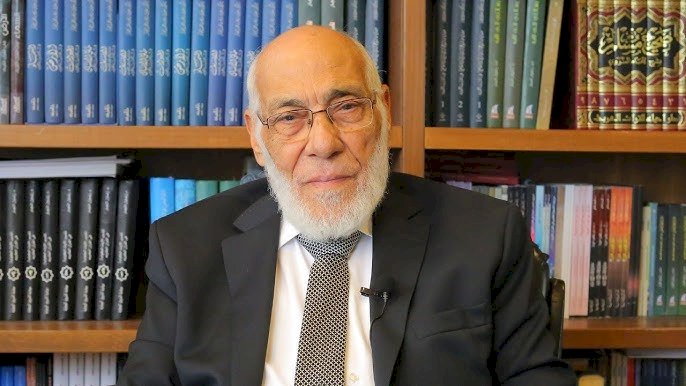


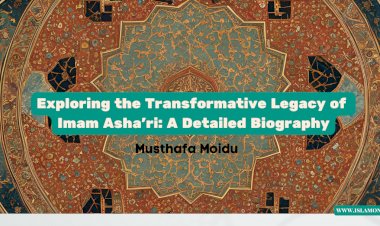
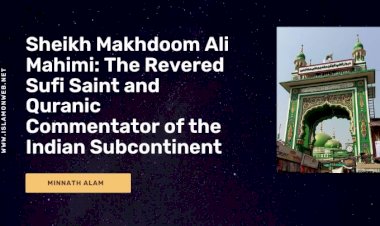
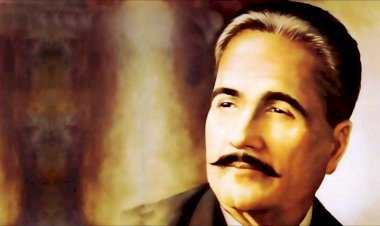

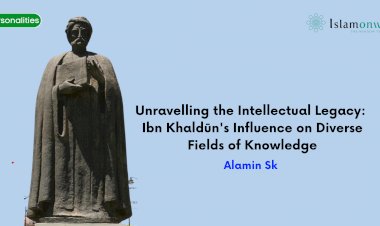















Leave A Comment